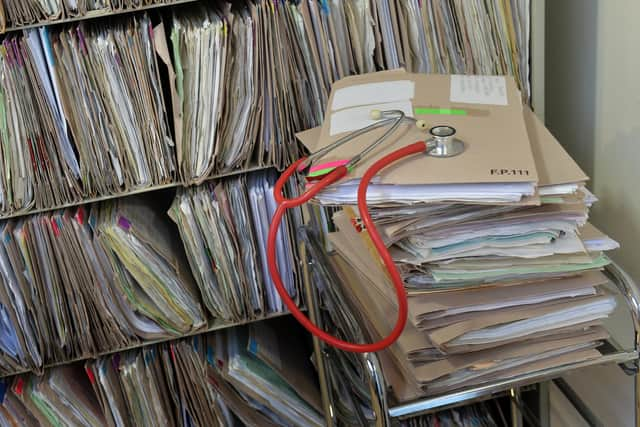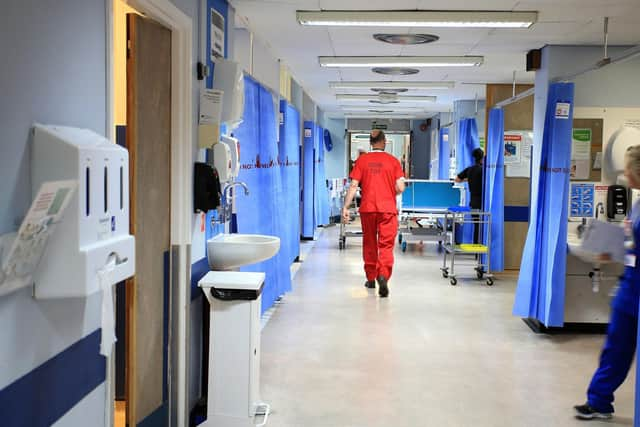Call to end 'postcode lottery' of care as gynaecology waiting lists treble across Yorkshire
Nearly 50,000 people are struggling to access gynaecology services in Yorkshire, analysis by this newspaper has found, with many already having sought support for well over a year.
The number of people on waiting lists for the region's hospital trusts has more than doubled in three years - and more than trebled in the past decade as services struggle to cope.
Advertisement
Hide AdAdvertisement
Hide AdIn some parts of Yorkshire patients are waiting 15 months or more to see a specialist, while struggling with pain or heavy bleeding, and the mental health pressures it presents.


Greater capacity is needed in primary care to ease the challenge, campaigners have said, calling for an elective recovery plan to focus on ending a postcode lottery for care.
Dr Ranee Thakar, is president of the Royal College of Obstetricians and Gynaecologists (RCOG). She said: “Gynaecology waiting lists were outstripping other specialities long before the pandemic, and they continue to grow rapidly.
“Women’s health has been consistently deprioritised. We are asking the NHS to rethink the way care is prioritised, and to consider the wider impacts on the individuals waiting for care."
Advertisement
Hide AdAdvertisement
Hide AdWaiting lists before the pandemic averaged just six weeks across 12 of the region's hospital trusts, analysis of NHS figures by The Yorkshire Post has found. Now, thousands have already waited more than nine months for their first appointment.


Not a single NHS Trust in Yorkshire in October had met the NHS guidelines for the first appointment to be within 18 weeks of referral from a GP. In Hull, meanwhile, one in 12 women had already waited more than 15 months for care.
Scarlet from Sheffield is a member of an Endometriosis UK support group. She waited 10 years for a diagnosis, she said, only to be told it may be three more years for surgery.
"I went private in the end and it cost me £13,000,” she said. “The surgery was in April 2021 and without it I would probably not be here right now. The waiting times are ridiculous and are risking lives.”
Advertisement
Hide AdAdvertisement
Hide AdHull West and Hessle MP Emma Hardy is co-chair of an All-Party Parliamentary Group (APPG) raising awareness of endometriosis.
Action must be taken to address the challenge that women face, she said, with an average wait of eight years for a diagnosis and with suffering “historically marginalised”.
"Because gynaecology waiting lists have grown by the highest percentage of any specialism over the pandemic, the most pressing need is to prioritise treatment based on symptoms, impact on quality of life and progression of disease,” she said.
“This means strategic capacity planning across the NHS. I expect this to be high on the agendas of the newly created Integrated Care Boards."
Both the NHS and the Department for Health and Social Care (DHSC) was approached for comment.